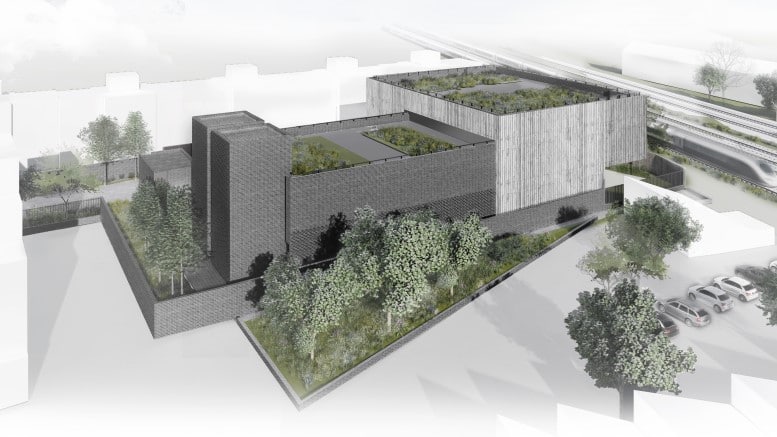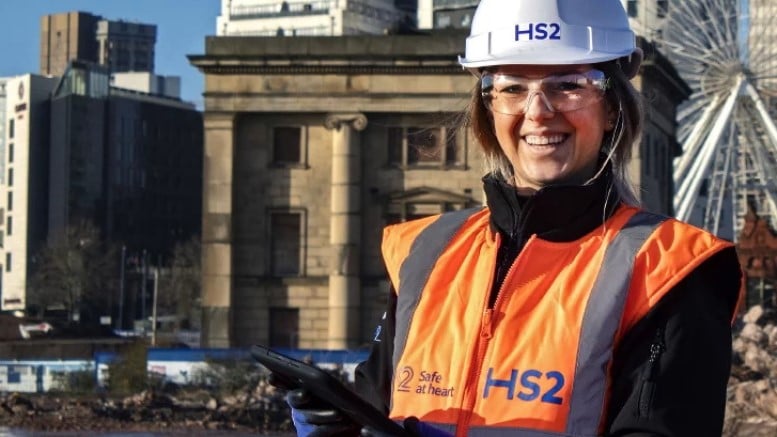
HS2 has revealed the design of one of the four vent shaft headhouses that will be built to provide ventilation and emergency access to the high speed rail line for the 4.5-mile-long Euston tunnel, between Euston and Old Oak Common.
The Canterbury Works vent shaft headhouse and compound, in South Kilburn, London, has been designed to blend into the local townscape. A variety of materials will be used in the design, with dark grey engineering brick, and grey softwood timber making up much of the structure. Situated behind Canterbury Road and Canterbury Terrace, the structure will be visible from the existing network rail lines and local properties.
The structure will be surrounded by planting, with a mixture of tree and shrub species creating an enhanced bio-diverse habitat for wildlife. The building roof will be covered with a ‘green roof’ containing a range of biodiverse planting to improve sustainability.

Below ground level, a 40 metre deep ventilation shaft will reach down to the twin tunnels below, with fans and other equipment above ground designed to regulate air quality and temperature, remove smoke in the event of a fire and provide access for the emergency services.

HS2 design director Kay Hughes said: “The HS2 line through London will be mostly underground in tunnels and this is one of the few visual manifestations of the railway between Euston and West Ruislip.
“Located on a brownfield site, we have been conscious of the proximity of local neighbours and views in developing the design and surrounding landscape. I hope that the design will be welcomed by the local community.”
The plans have been drawn up by main works contractor SCS JV (joint venture of Skanska/Costain/Strabag) working with architects from the Design House JV (Arup/Typsa/Strabag).

James Richardson, managing director for SCS JV, said: “As our work ramps up across all of our sites, these exciting designs give a glimpse of how the vital structures will complement the surrounding environment. We are committed to working closely with the local community and look forward to getting their input to help us shape the final designs.”
There are still some design elements that need to be refined, including the appearance of a security boundary wall around the perimeter of the headhouse.

The SCS JV team will also continue to work with the local school, St Mary’s Catholic Primary, to discuss the landscape opportunities for a ‘pocket park’ area beside the school. Proposals for the use of this space include a sensory garden, a green wall and an educational play space designed to provide a natural learning environment for the children.





Be the first to comment